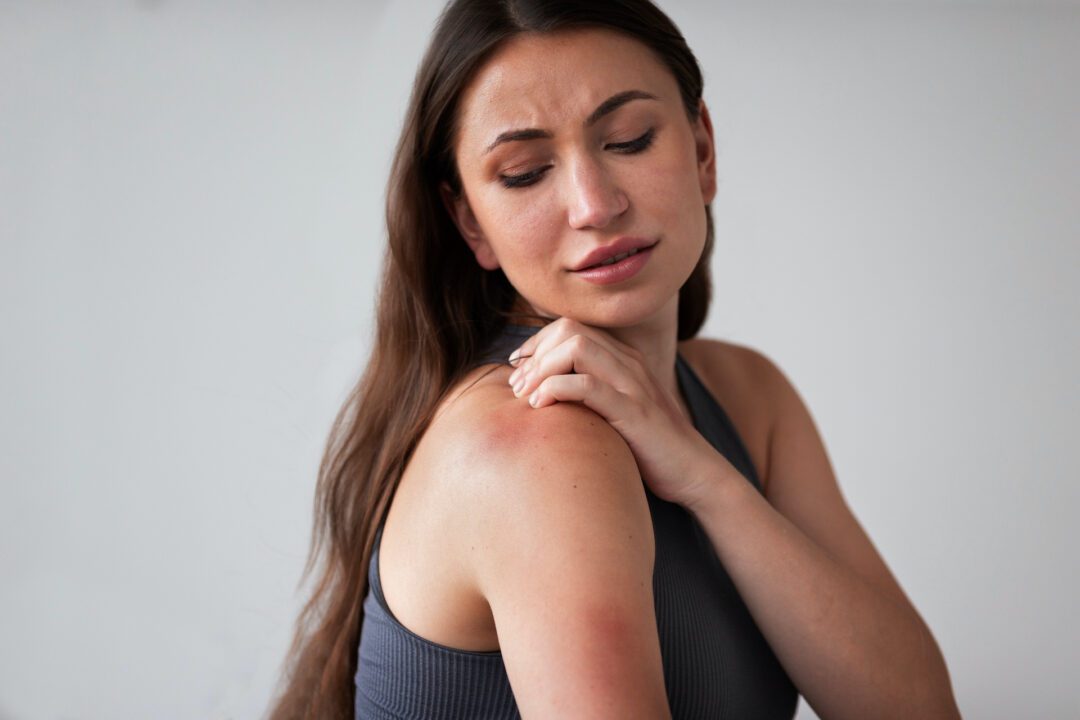Key Takeaways:
- In-depth exploration of psoriasis, including types, symptoms, and misconceptions.
- Crucial insight on psoriasis flare-ups’ triggers, genetic, and environmental causes.
- Profound effects of psoriasis on mental health and the importance of considering psychological wellbeing.
- Overview of traditional and novel psoriasis treatments, including personalized and biologic therapies.
- Discussion on alternative medicine and lifestyle changes in psoriasis management.
- Guidance on navigating the healthcare system for psoriasis treatment and the role of insurance.
Table of Contents:
- Demystifying Psoriasis: What It Is
- The Triggers and Causes Behind Psoriasis
- Recognizing Psoriasis: The Major Symptoms
- The Psychological Impact of Living with Psoriasis
- Modern Advancements in Psoriasis Treatment
- Alternative and Complementary Therapies for Psoriasis
- Practical Tips for Psoriasis Management

Demystifying Psoriasis: What It Is?
Many regard psoriasis as a skin condition, yet it’s far more complex than its visible manifestations. As an autoimmune disease, psoriasis stems from an overactive immune response, resulting in a rapid turnover of skin cells. These excess cells build up, forming thick, scaly plaques that can itch, burn, or sting. Broadly categorized, psoriasis includes plaque, guttate, inverse, pustular, and erythrodermic types, each presenting distinct symptoms and requiring different treatment approaches. Challenges in dealing with psoriasis are compounded by misconceptions, such as the notion of its contagiousness, which it’s not, or that it’s “just a rash,” ignoring its more profound systemic implications.
The Triggers and Causes Behind Psoriasis
Although many causes of psoriasis, stress, skin injuries (such as cuts or sunburns), certain drugs, and infections are frequently mentioned, numerous genes are linked to a higher genetic risk of psoriasis. However, having these genes does not necessarily mean one will develop the condition; it often lies dormant until an environmental trigger awakens it. The immune system’s role is pivotal in psoriasis, where it mistakenly attacks healthy skin cells, speeding up skin cell production. This rapid cycle does not allow the old skin to shed, leading to a buildup resulting in the scaly patches characteristic of psoriasis. To access advanced treatment options, locating the best skin care Memphis offers can be a game-changer for patients seeking comprehensive care.
Recognizing Psoriasis: The Major Symptoms
Recognizing psoriasis early can be crucial in managing its symptoms and finding effective treatment. The condition typically presents as red, inflamed patches covered with silver-white scales, primarily on the scalp, elbows, knees, and lower back. However, symptoms can vary significantly in severity and form; they may remain localized or become widespread. Apart from the outward manifestations, people living with psoriasis may also have stiffness and discomfort in their joints, which suggests psoriatic arthritis, a related inflammatory condition. The fact that symptoms can vary dramatically emphasizes how crucial expert diagnosis and customized treatment programs are.
The Psychological Impact of Living with Psoriasis
The impact of psoriasis is more than skin profound. Psychologically, the visibility of the disorder can lead to significant emotional distress, social withdrawal, and reduced quality of life. It’s not uncommon for individuals with psoriasis to experience depression or anxiety. The external perception of the skin plaques can affect personal relationships, professional interactions, and self-image. The emotional burden can serve as a trigger, worsening psoriasis in a feedback loop of stress and flare-ups. Therefore, managing the psychological aspects is critical to comprehensive psoriasis therapy.
Modern Advancements in Psoriasis Treatment
There have been remarkable advancements in treating psoriasis, providing hope for millions of sufferers. Today’s therapies ensure greater precision and efficacy, tailored to individual needs. Traditional treatments, including topical corticosteroids, vitamin D analogs, and light therapy, still play a foundational role. Systemic medications that work throughout the body, such as methotrexate and cyclosporine, are prescribed for moderate to severe cases. However, the most exciting development in psoriasis treatment is the advent of biologic drugs. These can change many people’s lives since they target immune system components that cause psoriasis.
Alternative and Complementary Therapies for Psoriasis
Beyond the boundaries of conventional medicine, many psoriasis patients explore alternative therapies. Lifestyle and dietary modifications, such as following an anti-inflammatory diet or reducing alcohol consumption, can be beneficial. Some people may find relief from supplements such as fish oil’s omega-3 fatty acids and turmeric, which have anti-inflammatory qualities. Integrative approaches to treating psoriasis increasingly use mind-body therapies, including yoga, acupuncture, and meditation. While scientific evidence of their efficacy varies, these therapies may complement traditional treatment and offer improved quality of life when adopted under professional guidance.
Practical Tips for Psoriasis Management
For those grappling with psoriasis, daily life can be full of challenges. Key to managing the condition is avoiding known triggers, such as minimizing stress and avoiding injury to the skin. Patients should apply moisturizers regularly to keep the skin soft and prevent plaques from cracking. Reducing the frequency of flare-ups can be accomplished in part by abstaining from smoking and excessive alcohol use, exercising regularly, and maintaining a balanced diet. Equally important is adhering to the prescribed treatment regimen and keeping open lines of communication with healthcare providers to adjust therapy as needed.
Featured Image by freepik





No Comments